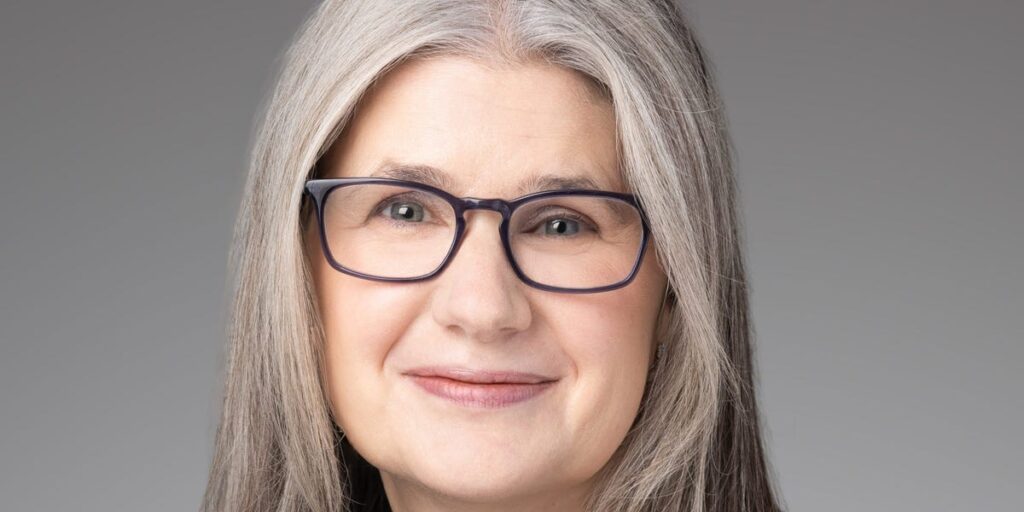With Wall Street summer internships in their final stretch, young bankers in training have a new concern: the return offer.
On Wall Street, internships are more than a summer gig. They’re often the main gateway to full-time investment banking jobs — making the stakes especially high.
Regina Savage knows a thing or two about building a successful investment banking career. A managing director at Morgan Stanley — a top Wall Street bank and coveted destination for aspiring bankers — she played a key role in taking electric vehicle company Rivian public in 2021
Savage began her banking career at Goldman Sachs in Los Angeles, advising on media mergers and acquisitions, before moving to Morgan Stanley in 2009, where she has remained since. She now serves as global head of the firm’s automotive and mobility technology group, focusing on electric and autonomous vehicles at a time when companies like Waymo and Tesla are making waves. Savage is also cohead of North America industrials within the investment bank, advising manufacturing and other industrial clients on M&A. She is based in Chicago.
In an effort to understand how young bankers can succeed in this competitive industry and put their best foot forward, Business Insider spoke with Savage, who has spent many years interacting with interns. She talked about the importance of seizing opportunities when they arise, understanding your own strengths and “superpowers” rather than trying to emulate others, and described the way lists help keep her organized.
Checking things off the list
As a managing director, Savage travels a lot to interface with clients. For her, early mornings are key to productivity.
“I think people have to know when they’re most productive,” she said. “I’m actually really ruthless and conscious of how I spend my time, and so as part of that, I know that I’m most productive in the morning.”
When she’s not on the road (or in the sky), she uses the first hour or two of her morning to get through the less fun, more administrative stuff.
“I tend to be up really early,” she said. “I get myself ready and I get myself a coffee, log in, and I try to triage what came in overnight.”
Lists are also a key part of her organization, Savage said.
“I also keep a running list of my priorities. And I reset that list every week, and look at that and make sure that I’m spending my time on what those are,” she said.
The right attitude
When it comes to hiring young talent, Savage looks for curiosity, enthusiasm, and a genuine interest in the work, rather than just technical skills.
“I think it’s really important that they have curiosity about the job and what it is that we’re doing and why we’re doing it. So it’s not just about putting together a slide, but why are we pulling this slide together?” she said.
“You’re only going to be successful at this job if you find it interesting,” she said. “Seeing people who really do want to understand how it all fits together is important.”
The attribute that the most successful interns and young hires tend to share is a good outlook and attitude.
“Attitude is well more than 50% of what makes somebody truly great at that level,” she said. “We can teach you the skills you need.”
Seizing opportunities
Savage didn’t plan to become an expert in the automotive space. Not long after arriving at Morgan Stanley, the bank needed someone to help lead Chrysler’s restructuring after its bankruptcy. Savage raised her hand.
“You don’t know where the opportunities are going to be. You just have to be ready to grab them when they come,” she said.
After spending about a year on that deal, she saw a “white space” in auto coverage and decided to focus on technology within the sector just as electric and autonomous vehicles were taking off. Aspiring bankers, take note.
“Being resilient and adaptable and, when you see an opportunity, jumping at it and with both hands, I think that’s the number one piece of advice I would give.”
Savage also warns not to dwell on “what could’ve been.”
“There’s no point in looking at closed doors or other paths that are closed to you. I feel like people worry that they missed something,” she said. “Don’t waste calories, energy, brainpower on regret.”
Know your superpower
Savage advises young people trying to find their way in the industry to be really honest with themselves about their strengths and weaknesses.
“Know your superpower,” she said. “I find people try to emulate others, but nobody is you.”
She gave herself as an example: “There are some people who strut into a room and they just command the room immediately and ooze charisma — that’s never going to be me. But I know what I am really good at. I’m really good at making connections and synthesizing information and being able to see patterns across different things,” Savage said.
Savage suggests starting by looking for people you admire who have similar strengths as you and at what they’ve done. This advice is particular important for young women, she said.
“It’s a lot less likely that there’s another woman that you’re working with that has a similar skillset to you that you can emulate. So being able to take little bits from everybody that you meet that you think is successful, and seeing how that works with your style, is really important.”
Read the full article here


